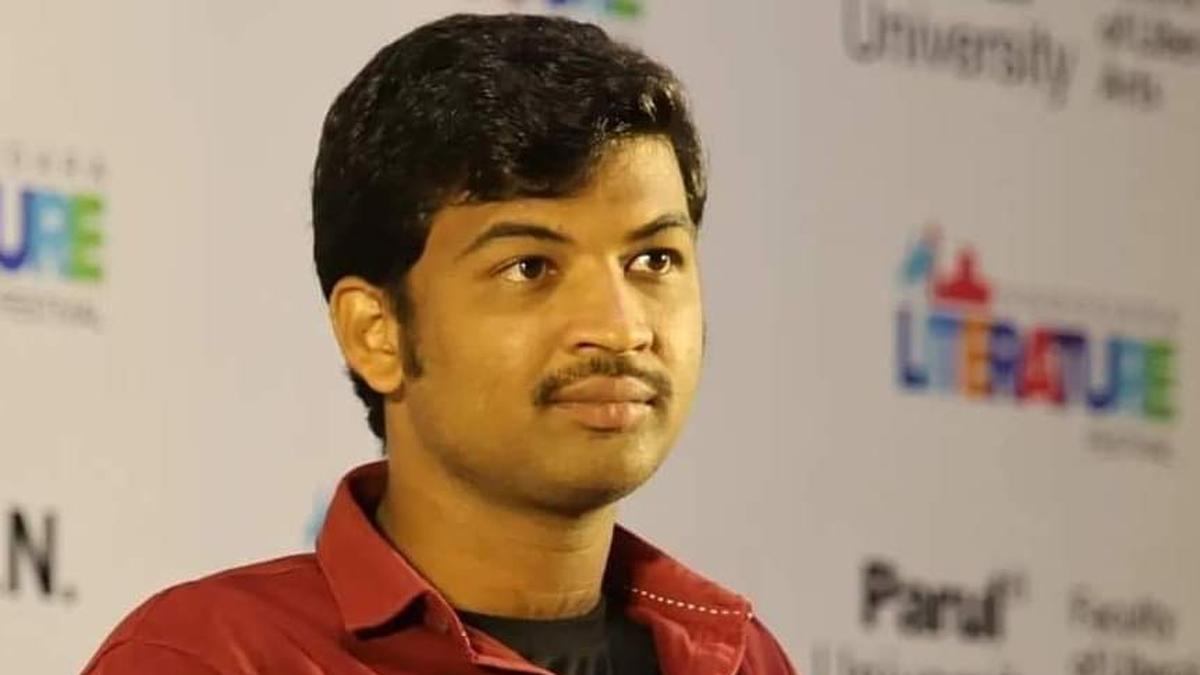
Sahitya Akademi-winning author Ramesh Nayak is the voice of the marginalised
The Hindu
Ramesh Karthik Nayak, the first tribal writer, explores marginalised communities through award-winning literature, shedding light on tribal life.
Beyond the limitations and diktats of the urban middle-class imagination of literature, there lies an abundance of Indian vernacular literature that explores the neglected margins of our society. A representative of the Banjara tribe in Telangana, Ramesh Karthik Nayak, 26, is one such voice. He comes from the tribal thanda of Vivek Nagar in the Jakranpally mandal of the Nizamabad district.
Nayak is the youngest and the first Telugu author to be honoured with the prestigious Sahitya Akademi Yuva Puraskar 2024 for his collection of short stories Dhavlo (Song of Lament, 2021). His literary journey spans four books – three short story collections and one collection of poetry – all written in the Banjari language in Telugu and English scripts. Besides garnering several awards and features in international and national publications, his writing has been included in university curricula across institutions in Telangana and Andhra Pradesh.
Reflecting on his own lived experiences, he depicts the reality of the indigenous nomadic community of the Banjaras, also known as Lambadas, who are originally from Rajasthan but are now scattered across the country.
“I used to scribble poems in the back of my school notebooks since I was a child, and scorned by my teachers who often tried to stop me from writing. But I knew my calling; I wanted my Banjara community to have a voice,” recalls Nayak. After passing Class X at SVSHS Bodhan, he undertook several odd jobs such as catering, distributing leaflets, selling books at events, and even repairing ACs, before his foray into writing. “Once my first collection of poems Balder Bandi was published in 2018, there was no looking back,” he says.
Nayak is the first writer to open a window into the Banjaras’ way of life, their culture, and heritage for contemporary readers. His work explores the politics of identity and belonging, the innate beauty of the nomadic landscape, and the myriad challenges faced by the tribal community.
“The Banjara identity is extremely fragmented, our festivals are hybridised, the colourful and flamboyant attires are now slowly fading, and the oral history is increasingly lost in translation. I want to capture the essence of our community, as we have remained hidden from mainstream literary spaces for a long time,” he emphasises.
While his award-winning Dhavlo (2021), in Banjari , delves into the nitty-gritty of Banjara life, his collection of Banjari poems Chakmak (2023), written in English digs deeper into the displacement and crises that nomadic tribes experience. Here, Nayak questions the concept of an ‘origin’ and evokes the loneliness that comes with being uprooted.













